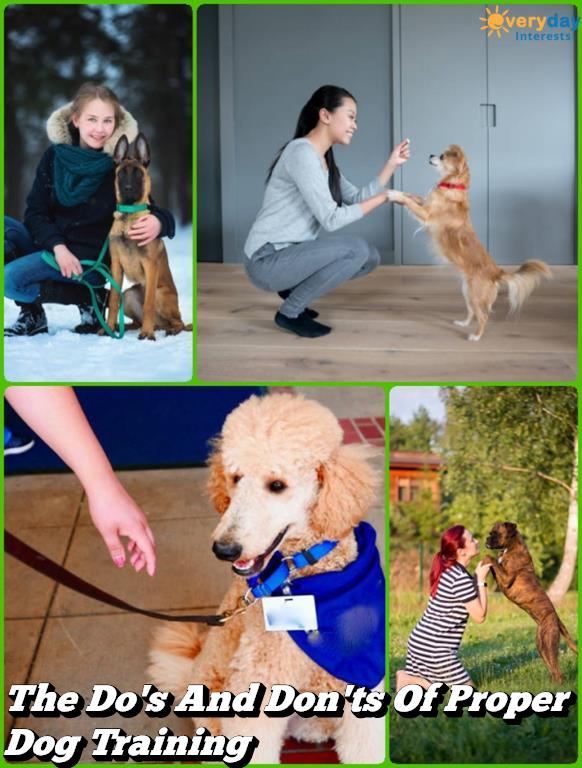Service dogs play a crucial role in supporting individuals with disabilities, providing them with assistance and companionship in their daily lives. These specially trained canines are essential for those with physical or emotional needs, offering a sense of independence and security.
However, the effectiveness of a service dog heavily relies on proper training, ensuring that they can perform their duties reliably and safely. In this article, we will delve into the importance of training for service dogs, potential consequences of inadequate training, legal requirements, and alternatives to untrained service dogs.
When it comes to service dogs, proper training is paramount to ensure their ability to assist individuals with specific needs effectively. From guiding visually impaired individuals to responding to medical emergencies or providing emotional support, these tasks require rigorous training and specialized skills.
The question arises: can a do be a service dog without proper training? It’s important to explore this topic not only from the perspective of the dog’s capabilities but also from the potential risks associated with an untrained service dog.
The implications of inadequate training for service dogs are significant, posing potential risks and dangers to both the handler and the public. Without proper guidance and instruction, untrained service dogs may exhibit unpredictable behavior in various settings, compromising the safety and well-being of their handlers and others around them.
Additionally, untrained service dogs may not be able to perform necessary tasks or interventions when needed, failing to meet the essential requirements of their role. This highlights the critical need for thorough training and certification processes for service dogs to fulfill their intended purpose effectively.
The Importance of Proper Training for Service Dogs
Service dogs play a critical role in assisting individuals with disabilities in their daily lives. Whether it’s guiding the blind, alerting to seizures, or providing emotional support, service dogs are specifically trained to perform these tasks. Proper training is crucial for service dogs as it not only ensures that they can effectively assist their handlers but also guarantees their safety and the safety of those around them.
Training is essential for service dogs as it allows them to develop the skills and behavior necessary for their specific roles. It teaches them how to respond to various situations and stimuli, helps them understand commands, and enables them to remain focused and calm in different environments. Without proper training, a dog may not be able to fulfill its duties as a service dog effectively.
Furthermore, inadequate training can pose dangers to both the handler and the public. An untrained service dog can act unpredictably, potentially causing harm or accidents. It may also be unable to provide the necessary assistance when needed, putting the handler at risk. This highlights the importance of ensuring that all service dogs receive proper training before being designated as such.
Ultimately, while there may be some exceptions where a dog naturally possesses all the necessary qualities to act as a service dog without formal training, it is generally unsafe and unreliable for an untrained dog to serve as a service animal. Proper training not only ensures that the needs of individuals with disabilities are met but also upholds public safety.
Can a Do Be a Service Dog Without Proper Training
Service dogs play a crucial role in the lives of individuals with disabilities, providing assistance and support in various everyday tasks. These specially trained dogs can perform a wide range of tasks such as guiding individuals who are visually impaired, alerting individuals with hearing loss to important sounds, and providing physical support for those with mobility challenges. However, the question remains: can a dog be a service dog without proper training?
The simple answer is no, a dog cannot be a service dog without proper training. Proper training is essential to ensure that service dogs are able to perform their duties reliably and safely. Without the necessary training, a dog may not have the skills or temperament to effectively assist individuals with disabilities. It is crucial that service dogs undergo rigorous training programs to ensure they are capable of providing reliable and consistent support to their handlers.
In addition to having specialized training in performing tasks related to a person’s disability, service dogs must also demonstrate good behavior and obedience in various environments. This includes being well-behaved in public spaces, being able to focus on their handler’s needs amid distractions, and remaining calm and composed in various situations. Without this level of training, a dog may not be suitable for the demanding role of being a service dog.
Legal Requirements for Service Dogs
Service dogs play a crucial role in assisting individuals with disabilities and performing tasks that their handlers cannot do on their own. However, not all dogs are fit to be service dogs, and proper training is essential to ensure that they can effectively perform their duties. In the United States, there are legal requirements in place for service dogs to ensure their qualifications and training adequacy.
Legal Definition of a Service Dog
According to the Americans with Disabilities Act (ADA), a service dog is defined as a dog that has been individually trained to do work or perform tasks for an individual with a disability. This means that the dog must undergo specific training to assist their handler with tasks directly related to their disability. Without this specialized training, a dog cannot be considered a service dog under the law.
Legal Requirements for Service Dogs Training
In addition to having the necessary training to assist individuals with disabilities, service dogs are also required by law to exhibit good behavior and obedience in public places. This includes being well-behaved around people and other animals, as well as being under control at all times. These legal requirements emphasize the importance of proper training for service dogs, as untrained dogs can pose potential risks and liabilities.
Enforcement of Legal Requirements
To ensure compliance with legal requirements, service dogs may also need to be certified or registered through reputable organizations that provide standardized testing and evaluation processes. This helps verify that the dog meets the necessary criteria for being a reliable and well-trained service animal. This certification process also serves as a means of distinguishing properly trained service dogs from untrained ones.
The legal requirements for service dogs highlight the significance of proper training and certification in ensuring that these animals effectively serve individuals with disabilities while maintaining public safety and accessibility. Thus, it is imperative for individuals considering obtaining a service dog to prioritize comprehensive training programs to meet these legal standards.
The Dangers of Untrained Service Dogs
Service dogs play a crucial role in the lives of individuals with disabilities, as they are trained to perform specific tasks and provide essential assistance to their handlers. However, when a dog is not properly trained to be a service animal, it can pose significant dangers to both the handler and the public.
Risk of Aggressive Behavior
One of the main dangers of untrained service dogs is the risk of aggressive behavior. Without proper training, a dog may exhibit behaviors such as growling, biting, or lunging at people or other animals. This can not only jeopardize the safety of the handler but also pose a threat to those around them.
Inability to Perform Necessary Tasks
Another danger of an untrained service dog is its inability to perform necessary tasks. Service dogs are trained to assist individuals with various disabilities, such as guiding the visually impaired, alerting individuals with hearing impairments, or providing stability for individuals with mobility issues. Without proper training, a dog may not be able to effectively carry out these essential tasks, potentially putting the handler’s safety at risk.
Legal Ramifications
In addition to the physical dangers associated with untrained service dogs, there are also legal ramifications to consider. If a service dog behaves aggressively or cannot perform its required tasks due to lack of training, it could result in legal consequences for the handler and their dog. Public access rights for service animals are contingent upon proper training and behavior, and an untrained dog may not be afforded these rights under the law.
Alternatives for Canine Companionship
According to the Americans with Disabilities Act (ADA), a service dog is defined as a dog that is individually trained to do work or perform tasks for a person with a disability. Therefore, it is crucial for service dogs to receive proper training in order to fulfill their role effectively and safely. However, there are instances where individuals may seek alternatives for canine companionship if they are unable to provide their dog with the necessary training.
One alternative for those who require assistance but cannot afford the time, resources, or expertise needed to train their own service dog is to seek out an already trained service dog from a reputable organization. These organizations often have rigorous training programs in place, ensuring that the service dogs they provide are well-equipped to assist individuals with disabilities in various tasks and situations.
It is important to thoroughly research and vet these organizations to ensure that the service dog provided meets the specific needs of the individual.
Another option that individuals may consider is obtaining an emotional support animal (ESA) or therapy animal. While ESAs and therapy animals do not have the same public access rights as service dogs, they can still provide valuable support and companionship. ESAs are prescribed by mental health professionals as part of a treatment plan for individuals with emotional or psychological disabilities, while therapy animals are trained to provide comfort and affection in therapeutic settings such as hospitals or nursing homes.
For individuals who require assistance but cannot commit to the responsibility of owning a service dog, exploring these alternative options can provide much-needed support and companionship without the stringent requirements of proper service dog training.
| Service Dog Alternatives | Description |
|---|---|
| Obtaining a Trained Service Dog | Reputable organizations offer well-trained service dogs tailored to individual needs |
| Emotional Support Animal (ESA) | Prescribed by mental health professionals for emotional or psychological disabilities |
| Therapy Animal | Providing comfort and affection in therapeutic settings without public access rights |
Training and Certification Process for Service Dogs
Service dogs play a crucial role in the lives of individuals with disabilities, providing them with essential support and assistance in their day-to-day activities. However, for a dog to effectively serve as a service dog, it must undergo proper training to fulfill its responsibilities. Without the necessary training, a dog cannot be considered a legitimate service dog and may pose potential risks to both its handler and the public.
The process of training and certifying a service dog is rigorous and involves specific steps to ensure that the dog is well-prepared for its role. Some of the key aspects of this process include:
- Socialization: Exposing the dog to various environments, people, and other animals to ensure they can adapt and behave appropriately in different situations.
- Task Training: Teaching the dog specific tasks related to the handler’s disability, such as retrieving items, providing stability support, or alerting to medical issues.
- Public Etiquette: Training the dog to behave calmly and obediently in public places, including restaurants, stores, and transportation hubs.
Proper training is crucial for ensuring that a service dog can effectively assist its handler without causing disruptions or safety concerns. Without this training, a dog may not have the necessary skills or behavior to function as a reliable service animal.
Additionally, certification through reputable organizations can provide validation of a service dog’s training and qualifications. While certification is not legally required in all jurisdictions, it serves as an assurance that the dog has undergone proper training and meets the standards of a competent service animal. This process helps distinguish legitimate service dogs from untrained pets posing as service animals.
The Impact of Service Dogs on Individuals With Disabilities
Service dogs have a profound impact on individuals with disabilities, providing them with essential support and assistance in their daily lives. These specially trained canines play a crucial role in helping their handlers navigate the challenges presented by their disabilities, whether it be physical, emotional, or psychiatric in nature. The bond between a service dog and its handler is one built on trust, reliability, and mutual dependence.
For individuals with mobility impairments, service dogs are trained to perform tasks such as retrieving items, opening doors, and providing stability and balance while walking. This level of assistance can significantly enhance the independence and quality of life for someone with a physical disability.
In addition to physical support, service dogs also provide invaluable emotional support for individuals with mental health conditions such as post-traumatic stress disorder (PTSD) or anxiety disorders. These dogs are trained to sense their handler’s emotional state and provide comfort and reassurance during times of distress.
Proper training is essential for a service dog to effectively fulfill its role and provide the necessary support for its handler. Without adequate training, a dog may not be able to perform the tasks required to assist an individual with disabilities effectively.
In some cases, an untrained dog may even pose a danger to its handler or others due to its lack of obedience and self-control. Therefore, it is imperative that all service dogs receive comprehensive training to ensure they can reliably meet the needs of their handlers.
Conclusion
In conclusion, the responsibility of properly training service dogs cannot be understated. While it may be tempting to overlook the necessity of rigorous training, the safety and well-being of individuals with disabilities depend on it. Without proper training, a dog simply cannot fulfill the complex and crucial tasks required of a service animal. As we have discussed, untrained service dogs pose serious dangers to those they are meant to assist, as well as to the public at large.
The legal requirements for service dogs exist for good reason: they help ensure that these animals are capable of safely and effectively performing their duties. By following these guidelines and investing in thorough training and certification processes, we can better guarantee that service dogs are able to provide the invaluable support needed by individuals with disabilities.
It is important to remember that while not every dog is suited to become a service animal, there are still plenty of ways for them to positively impact the lives of people in need. Whether through emotional support or other forms of assistance, unselected dogs can still bring great comfort and companionship.
Ultimately, it is our duty to uphold the standards set for service dogs so that those who rely on them can receive the highest level of care and support.
Frequently Asked Questions
Can My Dog Become a Service Dog?
Yes, your dog can become a service dog with proper training and certification. It’s important to assess your dog’s temperament, obedience, and ability to perform specific tasks before considering them for service dog work.
Is Leash Training a Necessity for Service Dog Training?
Leash training is essential for service dog training as it teaches the dog to walk calmly and be under control at all times. This is crucial for a service dog that needs to navigate public spaces and assist their handler effectively.
Does Maine Recognize Service Dogs in Training?
Maine does recognize service dogs in training under their state laws. These dogs have the same rights as fully trained service dogs when it comes to access to public places, transportation, and housing accommodations. However, it’s important to check local regulations and guidelines for specific requirements for service dogs in training within the state of Maine.

Welcome to the blog! I am a professional dog trainer and have been working with dogs for many years. In this blog, I will be discussing various topics related to dog training, including tips, tricks, and advice. I hope you find this information helpful and informative. Thanks for reading!





